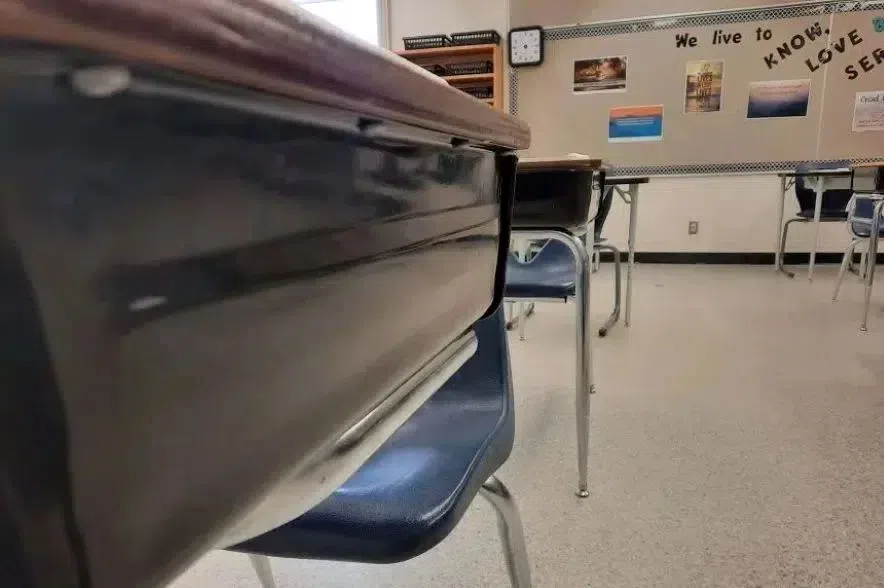The labour dispute between Saskatchewan’s teachers and the provincial government could be nearing an end.
In an email sent out Wednesday evening, the chair of the Government-Trustee Bargaining Committee (GTBC) said the sides had reached a tentative agreement.
“The GTBC feels this is a fair and reasonable agreement that will benefit Saskatchewan students, teachers and families,” Don Hoium, the committee’s chair, said in the statement.
In an earlier release, the Saskatchewan Teachers’ Federation (STF) said it would present what it called the government’s “final offer” to its members in the biggest sign yet that the ongoing labour conflict could end.
A media advisory said STF president Samantha Becotte is to be available Thursday to discuss the offer.
After what the STF described as two days of “difficult negotiations,” the union executive and bargaining committee decided to give the teachers the opportunity to vote.
The media advisory said the final offer includes a three-year agreement, with salary increases of three per cent in the first year of the deal, three per cent in Year 2 and two per cent in the third year.
It also includes a reference to the accountability framework in relation to the Memorandum of Understanding made between government, school divisions and teachers.
The GTBC said the proposed contract also includes enhancements to teachers’ benefits package as well as “inclusion of an accountability framework in the agreement.”
The previous collective bargaining agreement expired in August. The teachers declared an impasse in negotiations in October and voted overwhelmingly to implement sanctions against the government.
The sanctions started in January and included rotating one-day strikes, the withdrawal of lunch-hour supervision and the withholding of supervision for extracurricular activities.
Major events like trips, band concerts and athletics were cancelled. That included the provincial high school basketball championships, which were reduced from a three-day tournament to a one-day event.
While salary was one sticking point, class size and classroom complexity were major issues.
The teachers’ federation wanted those issues included in negotiations and in the contract, but the government said that wouldn’t happen. It said local school boards should make decisions about those things — and then provided the school boards with $356 million in funding over four years to deal with the issues.
After the STF said it wouldn’t return to negotiations until the government changed its stance on classroom complexity, the employer created a Memorandum of Understanding addressing the matter.
However, the union refused to sign the MOU – something that Education Minister Jeremy Cockrill was quick to point out. Becotte said the union wanted the language in the MOU clarified before it would sign on.
The government claims funding is between it and the school divisions, but teachers say classroom conditions are teachers’ working conditions, and pointed to other provinces that have stipulations on class size built into collective agreements.
The union also argued that funding could be clawed back by government in the future unless it’s enshrined in a contract.
On April 5, the STF announced it was launching a work-to-rule campaign on April 8. By Friday, the government appeared to have softened its stance, and the STF said it would lift all of its sanctions on Monday and return to the bargaining table on Tuesday.
That meeting was the first formal set of talks since mid-February.











